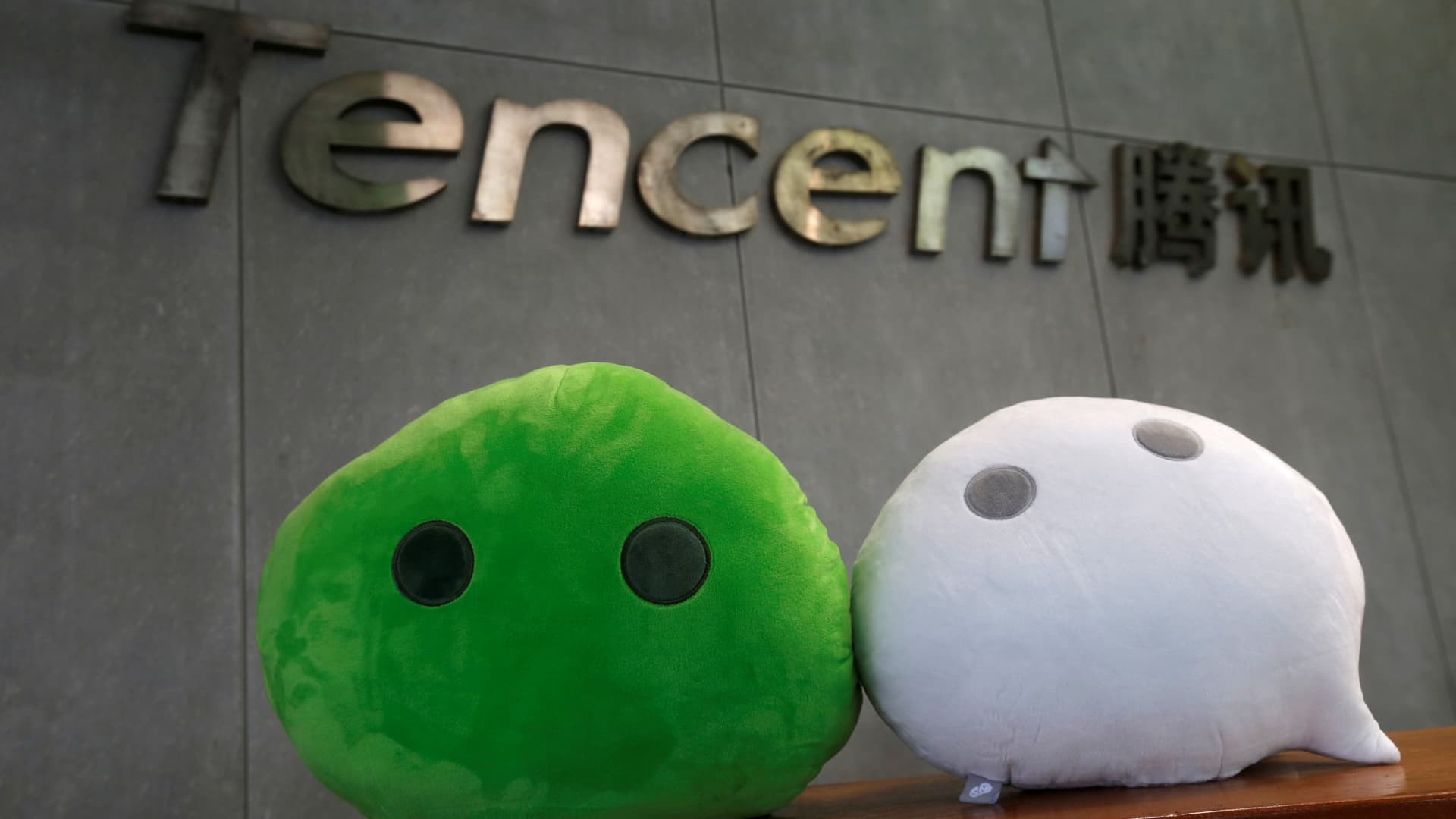
Tencent has faced a number of headwinds in 2022 including a Covid-induced slowdown in the Chinese economy and a tougher market for gaming.
Bobby Yip | Reuters
Tencent on Wednesday reported a weaker-than-expected surge in profit for the second quarter, as cost-cutting measures began to pay off and sales rose across the company’s various businesses.
Here’s how Tencent did in the second quarter, versus Refinitiv consensus estimates:
- Revenue: 149.21 billion Chinese yuan ($20.46 billion) vs. 151.73 billion yuan expected, representing a rise of 11% year-on-year.
- Profit attributable to equity holders of the company: 26.17 billion Chinese yuan vs 33.42 billion yuan. That is a 41% year-on-year rise.
Tencent is now starting to see the benefits of the cost-cutting drive it embarked on last year, when it exited non-core businesses and tightened marketing spending. The company, which owns China’s biggest messaging app WeChat, is now observing a pick-up in its businesses, from gaming to cloud computing.
“During the second quarter of 2023, we sustained a solid revenue growth rate, along with a gravitation toward high quality revenue streams with better margins,” Tencent said in a statement.
“This transition, combined with careful cost discipline developed in the previous year, resulted in profit growth exceeding revenue growth.”
Tencent has now reported three straight quarters of revenue growth, as the Chinese technology giant recovers from the headwinds of a tough 2022.
Firstly, its core gaming business slowed dramatically relative to comparisons with 2021, when people relied more on indoors entertainment because of the spread of the pandemic. Tencent is one of the world’s biggest online gaming companies.
Secondly, Chinese authorities froze the approval of new games for several months and only restarted the process in April 2022. It took a few months for the regulators after this to approve games published by Tencent.
But the weaker-than-expected revenue growth continues to reflect the turbulence of the Chinese economy, which has failed to recover as briskly as many had anticipated after the pandemic.
Gaming sees tepid recovery
Tencent said its domestic game revenue remained flat year-on-year at 31.8 billion yuan, after the company released “less-commercial content” — such as in-game purchases — in its biggest titles. The steady result was better than the 1% revenue decline seen in the second quarter of 2022. Tencent said this was a “temporary phenomenon” and that domestic game revenue should resume year-on-year growth in the third quarter of the year.
Revenues from the International Games unit increased by 19% to 12.7 billion yuan, bolstered by titles like Valorant. Tencent has been focusing on boosting its international gaming revenue, given weak domestic sales and a tough regulatory environment in China.
Tencent said there are “signs that the post-pandemic dip in activity is moving behind us in mobile games.”
Ad business surges
Tencent’s moderate performance in the gaming business was offset by a big rise in revenue in its advertising unit, with a 34% year-on-year jump to 25 billion yuan. The figure beat Refinitiv consensus estimates of 22.85 billion yuan for ad revenue.
The company said this was the result of “robust demand” for advertising on its short-video platform, as ad spend on its platforms grew at “double-digit year-on-year rate from every major advertiser category, except transportation.”
Tencent’s sales were also helped by revenue from its financial technology and cloud computing division, which added 15% year-on-year to 48.6 billion yuan. Tencent runs one of China’s biggest mobile payments platforms called WeChat Pay, for which it charges transactions fees.
The fintech and cloud division was helped by e-commerce transactions on Tencent’s short video platform as well as by “modest growth” in cloud services, the company said.
